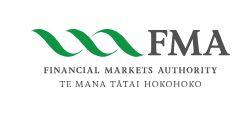FMA warns New Zealanders of comparison website harvesting investor details
The Financial Markets Authority (FMA) – Te Mana Tātai Hokohoko – is urging New Zealanders to exercise extreme caution when dealing with a phony interest rates comparison website. The FMA believes the website is harvesting users’ personal information for criminals to sell fake investments.
The website “Compare Fixed Term Deposits (CFTD)” claims to offer consumers a way to compare all registered and regulated fixed income investments in New Zealand and find the highest rates.
The website does not contain any comparison information, rather it asks users to fill out a form with their personal details so a third party can contact them.
The FMA has seen an increase in the number of investment scam victims reporting that they entered personal details into comparison websites such as CFTD and have then been contacted by individuals purporting to be from well-known banking institutions such as Citibank or HSBC. Some victims have lost hundreds of thousands of dollars to these schemes.
CFTD’s website indicates it is based in Australia, as it refers to Australian standards and regulations. It states in its terms that it is permitted to provide factual information that is sourced from external credit providers. However, both the Australian and New Zealand Companies Offices and financial regulators have found no record of CFTD.
FMA Response and Enforcement Executive Director Paul Gregory said: “We believe this website is a front used to harvest personal information from New Zealanders for criminals to exploit.
“The FMA strongly encourages New Zealanders to only deal with locally-registered entities and if someone is pushing you into an investment opportunity, step back and ask yourself: why am I being offered this over the phone? Is this legitimate? Don’t be rushed, be sceptical and ask lots of questions. Hit the pause button before sending or committing any of your money to people you cannot truly verify. Most often with scams like these, your money is transferred overseas and it is incredibly difficult for New Zealand authorities to get back.”
The FMA encourages people to come forward with any similar experience. The FMA understands it’s difficult to share these stories but it will make a difference.
From January to June 2023, the FMA has received 154 complaints about investment scams and fraud and issued 40 public warnings about scams and other non-compliant entities.
Comparison sites are often presented in search results when people are searching for investment opportunities. Phony sites will often be presented alongside legitimate comparison sites and appear because they are paid for, ‘sponsored’ links, rather than genuine search results.
Red flags to watch for and ways to avoid being scammed include:
Check the site you’re using is genuine. Make sure the company is based here, has a New Zealand phone number and the website url matches the company.
Legitimate comparison sites such as Sorted.org.nz will usually link you to the companies offering the investments, not capture and pass on your details to someone claiming to be an ‘adviser’ or ‘broker’.
Check very carefully before sending any money or personal information to an investment opportunity, even if you think you’re investing with a legitimate or well-known financial institution. Do not trust links, emails or contact details supplied by callers. Check for yourself with the institution.
Banks and fund managers are licensed and regulated and do not generally call you out of the blue, offering a new opportunity that demands you immediately send them money.
Pay attention, listen to your bank if it raises questions or concerns about your payment requests or money transfers – they may have seen other customers lose money responding to the same opportunity. Check with a trusted adviser, friend or family member – often all it takes is a fresh set of eyes to raise red flags you may not have considered.
More information on how New Zealanders can protect themselves against investment scams, report a suspected scam, and a list of our public warnings can be found on the FMA website.


